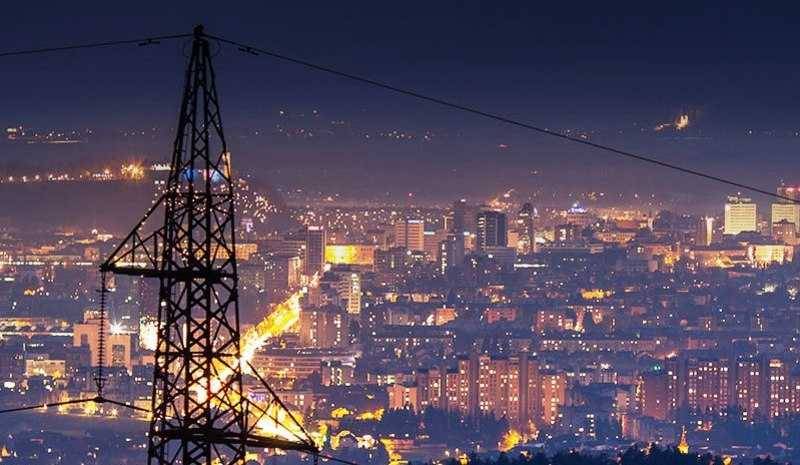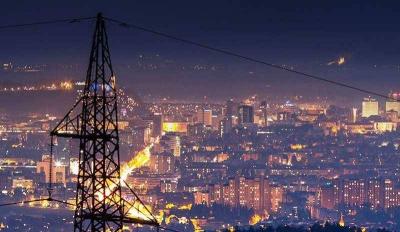The electricity crisis in Lebanon has resurfaced just before the summer season, coinciding with rising temperatures, due to ongoing allegations of corruption in this sector and the Central Bank of Lebanon's refusal to finance the Ministry of Energy for fuel purchases. Saji Attiyeh, head of the Public Works and Energy Committee, sounded the alarm, announcing that Lebanon would plunge into darkness in just a few days. This prompted action from caretaker Prime Minister Najib Mikati, who contacted his Iraqi counterpart, Muhammad Shia' al-Sudani, who promised to consider providing Lebanon with fuel within weeks.
Attiyeh rejected the idea of blaming the Central Bank for the new crisis, asserting in a statement to "Asharq Al-Awsat" that the failure of Electricité du Liban to collect bills is the direct cause, adding that several institutions have also failed to pay their dues. He revealed that investors in state-owned maritime properties have not adhered to their court-mandated commitments to pay operational fees and electricity bills to ensure liquidity for the Ministry of Finance to purchase fuel. They only paid about 30% of their obligations for last year, and for the current year, they have paid nothing. Attiyeh noted that following the announcement of the impending crisis, investors in public maritime properties requested a meeting with the Public Works Committee next week to negotiate a payment plan for their dues to avoid losing the summer season, especially for pools, restaurants, and resorts.
Since the beginning of this year, Electricité du Liban has increased electricity supply by 6 to 10 hours daily, which is considered acceptable compared to previous years when supply was nearly non-existent, following the disbursement of a treasury advance obtained from the central bank to pay for Iraqi fuel. A source at the Central Bank stated that the central bank is committed to not providing a new advance for electricity and that the institution must collect bills from customers. The source added that last year, the Central Bank granted the Ministry of Energy a final advance, and the ministry promised to collect bills from consumers to purchase fuel without needing additional advances.
The source emphasized that the Central Bank cannot procure fuel without a law and cannot fund this sector on a permanent basis. Citizens are concerned about the government's laxity regarding this vital supply and the lack of necessary fuel reserves, especially amid fears of an Israeli war and a maritime blockade on Lebanon, which could prevent the delivery of this essential material, potentially cutting off even private generators.
Dr. Ghassan Baydoun, former general director of investment at the Ministry of Energy, attributed the new crisis to the lack of necessary funding to operate production plants and recover fees from collections. He stated that the electricity crisis is structural and cannot be resolved through the plans presented by the Ministry of Energy as long as the ministry and Electricité du Liban are unable to control the network and protect it from violations and theft, which approach 60%. This is particularly concerning as violations have increased with the massive capacity to breach the grid and steal from it.
With the decline in technical, administrative, and financial conditions within Electricité du Liban, and the absence of intent or will to reform this sector, which is the largest burden on the state's treasury, Dr. Ghassan Baydoun suggested that the solution lies only in decentralizing production and distribution. He pointed to the successful model in Zahle's electricity service, which has managed to provide 24-hour electricity despite the legal gaps in its operations. He argued that municipalities should take over this plan as they are responsible for all work that falls within public benefit and their core mission includes overseeing the performance of public facilities.
Dr. Baydoun added that no solution exists without the intervention of municipalities and municipal unions, as they are best equipped to perform this role in collaboration with the private sector. He mentioned that no Lebanese or foreign investor would dare to finance any electricity project through the Ministry of Energy or Electricité du Liban, as nothing guarantees the end of theft and violations on the network or oversight over bill collections.
Financial and economic experts agree that nearly half of the public debt, which is around $100 billion, results from funding electricity, amounting to $44 billion through public budgets and treasury advances from the Central Bank. Dr. Ghassan Baydoun, also an expert at the Financial Institute for Market Studies, stressed that the Central Bank is not responsible for the electricity crisis, stating that this is an excuse often used by the Ministry of Energy to cover its failures. He urged it to stop selling illusions to the public, noting that the adjustments made last year to electricity tariffs are unjust and resemble a tax, as they are excessively high and do not correspond to the very low supply hours.




